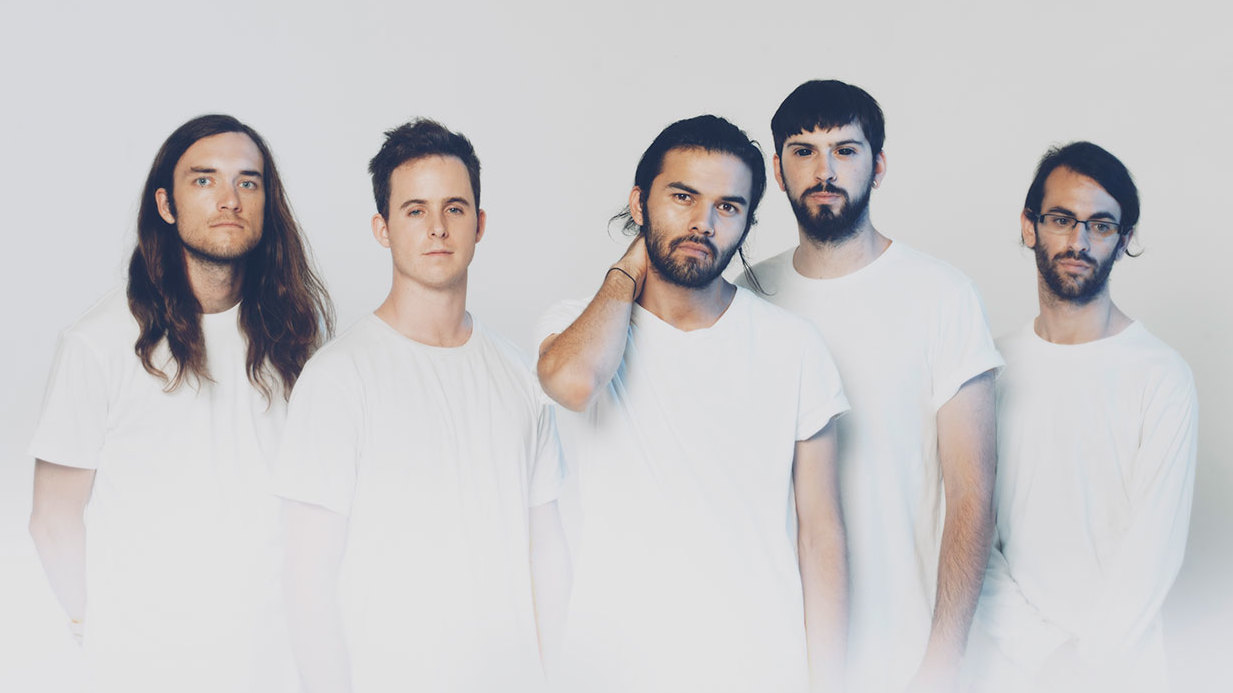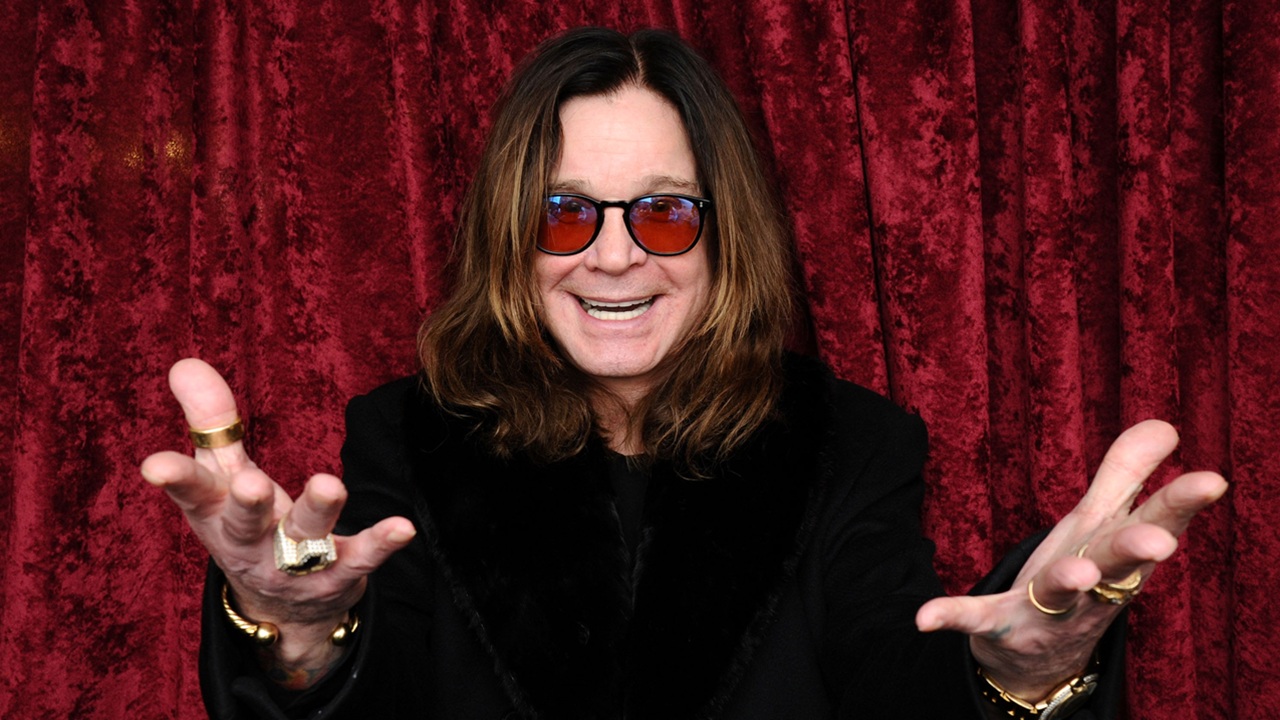Josh Smith's track-by-track guide to the new Northlane album
Your essential in-depth guide to Northlane's fourth album Mesmer, by guitarist Josh Smith

Northlane’s fourth record takes its title from German scientist Franz Mesmer, who came up with the theory of animal magnetism – the idea that there’s a transference of energy between all living things. It continues the themes of social and environmental responsibility explored on 2015’s Node, but strays into the personal for the first time ever, as the band express their own raw feelings of loss and death. Mesmer was recorded in New Jersey with producer David Bendeth (Of Mice & Men), who teased these emotional experiences out of the band.
“On the first day we got to the studio, he took us out on his boat on the lake, and we drank beers all day and he got to know us,” explains guitarist Josh Smith. “On the second day we went into the studio and all of a sudden he was extracting all of these deep-seated grievances we had with each other within the band, and insecurities we were harbouring. By being so brutally honest with us and being so hard with us, he definitely made us more confident in the work we did.”
We asked Josh to walk us through Mesmer.
Citizen
“It was inspired by [ex-CIA agent and whistleblower] Edward Snowden. I think what he’s done is a gift to the world and we should all be grateful for the transparency he’s introduced, especially with digital surveillance, which is something that nobody knows about and nobody was ever asked about, and it’s not democratic in the slightest. It scares me for what it may be used for in the future. That’s the topic that Citizen addresses.”
Colourwave
“Colourwave was written about my battle with depression, which is an ongoing thing, which I’m fairly on top of these days. When I was 17 I had very acute depression, I was actually hospitalised for it. I was suicidal and it kind of came out of nowhere. And it was a really dark time in my life that I’ve only really come to terms with recently – writing this song really was therapeutic for me in addressing that.”
Sign up below to get the latest from Metal Hammer, plus exclusive special offers, direct to your inbox!
Savage
“Savage is my favourite song on the record. It’s very existential, and I wrote it after watching 2001: A Space Odyssey. It’s about human nature and how we’ve taken our eyes off what’s really important and focused on fighting between ourselves, rather than banding together. I watched a documentary called Overview, which was talking about astronauts and their experience when they’re able to view the planet from outer space and see a world without borders – how it completely changes their paradigm on who we are as humanity and we are one species. We’re quite often distracted from that intrinsic fact. This song’s really addressing that.”
Solar
“It’s talking about how the natural world and the human world are not in sync, and they’re colliding in a destructive pattern. Humans have the mindset of utilising a resource until it runs out and then moving on. In the context of this song, that resource is the planet we live on. And I think it’s great that we are starting to plan to colonise other planets. Mars is incredibly exciting, but we can’t forget about where we live now and what we need to do to take care of it.”
Heartmachine
“Heartmachine is talking about the loss of Marcus’ relationship and how it affected him, but it can be likened to every song on the record, too. Citizen is talking about loss of our privacy, Colourwave is talking about loss of a dark perspective, Savage is talking about the loss of our higher perspective. Solar is talking about our loss of appreciation and interconnectedness with nature, and from then on the record gets a lot more personal.”
- What's going on with the Northlane x In Hearts Wake EP?
- Confessions: Northlane's Marcus Bridge
- Northlane cover Tame Impala track
- Read Classic Rock, Metal Hammer & Prog for free with TeamRock+
Intuition
“The song is about shutting out all the external noise that influences your decision-making as a human, and all the things that you’re taught to accept, and just focusing on what your inner voice is telling you to do. There’s a lot of people who might feel like they’re not good enough for the expectations that are drawn upon them, and this song addresses that from the perspective of social conditioning and what we’re taught we’re supposed to think and be.”
Zero-One
“I was inspired by a really close friend of mine that I went to school with. He said, ‘What you’ve done has inspired me, I hate the path I’ve taken in life, I wish that I followed what I love like you did.’ I said to him, ‘If you’re unhappy, it’s never too late in life to change where you’re headed and try something new.’ This song’s talking about that – losing the social design that’s telling you that you have to walk such a straight and narrow path.”
Fade
“Fade is the song that Marcus wrote about the loss of his father. The lyrics talk about Marcus being a victim of passion. He was a victim of the passion of his parents and drawn into their crazy world and suffered through their suffering. He has been left with this pain from the loss of his father and the estrangement of his mother that is something he can’t really leave behind him. And it was his chance to address this.”
Render
“It was inspired by [late US comedian] Bill Hicks, who was one of my favourite people. I thought some of the things he had to say were pretty incredible. The real kick of this song is the lyric – ‘Is reality all my senses perceive.’ Like, is this world all it really seems to be. Is it what we think of it based on our interpretation, or is there more to it. I think one of the most beautiful quotes Bill had was, ‘This is just a ride.’ There’s not that much more too it. And we’re drawn into this crazy world of, you’ve gotta make money, get a job, get a mortgage, raise a family, do all this crazy shit, and we don’t take time to just enjoy the moment and enjoy where we are and who we are as people. We don’t get to take a step back from that.”
Veridian
“Veridian was about the loss of one of my great grandmother, who passed away while I was writing this record, and it’s telling the story of the last time that I saw her. What I say in the lyrics is exactly what she said to me – I ever wanted to grow this old, I never wanted to live to this age. She died at the age of 94. It was the first time in my life where someone had passed away and I was happy for her to make that transition into whatever comes next because of how much pain she was in while she was being kept alive.”
Paragon
“When Tom [Searle] passed away, Jon (Deiley, guitarist) said to me a couple of weeks after that he’d written this new song and it had to be about Tom. We named our band after an Architects song, and his early departure from this world was something that affected us all very deeply. Pretty much every lyric in this song is a reference to an Architects lyric or the Rise Against song Architects. So literally every line in the song has been adapted from something that he had to say, as a tribute to him. It’s also the heaviest song on the record, which is strange for the last track, but to us it felt right.”
Mesmer is out now, via UNFD.

Eleanor was promoted to the role of Editor at Metal Hammer magazine after over seven years with the company, having previously served as Deputy Editor and Features Editor. Prior to joining Metal Hammer, El spent three years as Production Editor at Kerrang! and four years as Production Editor and Deputy Editor at Bizarre. She has also written for the likes of Classic Rock, Prog, Rock Sound and Visit London amongst others, and was a regular presenter on the Metal Hammer Podcast.
